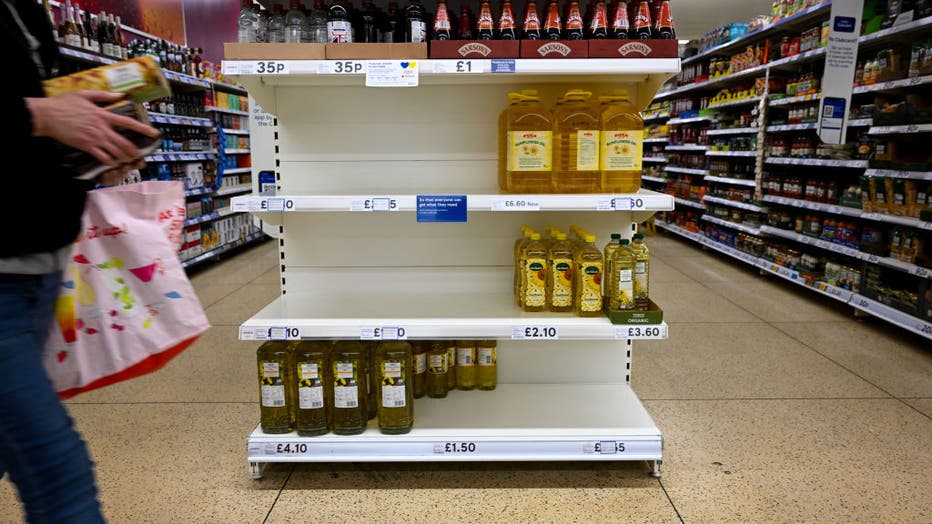Cooking oils see historic price hikes due to Ukraine war

Russia's assault on Ukrainian cities continued, including Russia's disputed claim to have taken control of its first major city, Kherson, and a strike on Ukraine's second-largest city, Kharkiv, that led one official to call Kharkiv "the Stalingrad of the 21st century." Slavic Gospel Association is providing help to local churches that are aiding Ukrainians in the war zone.
GENEVA - Cooking oils are the latest commodity to be impacted by Russia’s invasion of Ukraine.
The United Nations says prices for world food commodities like grains and vegetable oils have reached their highest levels as a result of Russia’s military assault on its European neighbor.
The U.N. Food and Agriculture Organization (FAO) said last month that its Food Price Index, which tracks monthly changes in international prices for a basket of commodities, averaged 159.3 points last month, up 12.6% from February.
The ongoing war has prompted a 17.1% rise in the price of grains, including wheat and others like oats, barley and corn. Together, Russia and Ukraine account for around 30% and 20% of global wheat and corn exports, respectively.
RELATED: Food prices soar to record levels amid Russia-Ukraine war, supply disruptions
But vegetable oils have seen the largest price increase with a price index rise of 23.2%. The increase has largely been driven by higher quotations for sunflower seed oil that is used for cooking. Ukraine is the world's leading exporter of sunflower oil, and Russia is No. 2.
"There is, of course, a massive supply disruption, and that massive supply disruption from the Black Sea region has fueled prices for vegetable oil," said Josef Schmidhuber, deputy director of FAO's markets and trade division.
"Essentially, there are no exports through the Black Sea, and exports through the Baltics is practically also coming to an end," he added.
Soaring food prices and disruption to supplies coming from Russia and Ukraine have threatened food shortages in countries in the Middle East, Africa and parts of Asia where many people already were not getting enough to eat.

Sunflower Oil shelves are seen partially empty in Tesco, on May 03, 2022 in Salisbury, United Kingdom.
Those nations rely on affordable supplies of wheat and other grains from the Black Sea region to feed millions of people who subsist on subsidized bread and bargain noodles, and they now face the possibility of further political instability.
Other large grain producers like the United States, Canada, France, Australia and Argentina are being closely watched to see if they can quickly ramp up production to fill in the gaps, but farmers face issues like climbing fuel and fertilizer costs exacerbated by the war, drought and supply chain disruptions.
In the Sahel region of Central and West Africa, the disruptions from the war have added to an already precarious food situation caused by COVID-19, conflicts, poor weather and other structural problems, said Sib Ollo, senior researcher for the World Food Program for West and Central Africa in Dakar, Senegal.
"There is a sharp deterioration of the food and nutrition security in the region," he told reporters, saying 6 million children are malnourished and nearly 16 million people in urban areas are at risk of food insecurity.
The Associated Press contributed to this story. It was reported from Los Angeles.

